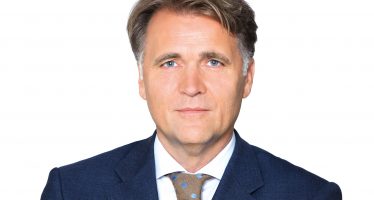C2FO: Cash Flow During Times of Crisis — or Expansion
C2FO, whose stated mission is to deliver a future where every company, anywhere in the world, has the capital it needs to grow.

In these turbulent times it is concentrating on helping businesses to survive — but in some cases, managing surprising spikes in demand.
There are plenty of obvious reasons why businesses, small or large, need regular cash flow: to pay salaries and bills, to buy inventory, to drive growth. For many SMEs, though, the economic meltdown caused by the coronavirus pandemic has been a time of enormous stress in terms of liquidity.
In a recent C2FO survey, 75 percent of SMEs in the US stated that they lacked sufficient cash for the next six months. In Europe, 40 percent of SMEs report a liquidity shortage, especially in sectors such as hospitality, retail and construction.
“Thanks to quick and close collaboration, many C2FO buyers have introduced or retained invoice discounting programmes available to suppliers, sometimes tapping into third-party funding.”
Fortunately, many governments and central banks have launched job-protection schemes and lending programmes directed to businesses. But these won’t last forever, nor reach all the SMEs in time. Even for companies with a healthy flow of orders, there is still the challenge of long payment terms of 60, 90, or 120 days — and of late payments. With liquidity scarce and precious, many companies have rushed to ask their customers for faster payment of outstanding invoices. Early payment discounts have been around for decades but online, on-demand and easy-to-use platforms have made them an attractive alternative to traditional funding sources, including borrowing.
C2FO runs more than 250 early payment programmes for large corporates (including 25 of the world’s 100 largest companies) which spend trillions with suppliers — many of them SMEs — every year. The strain on supply chains and the increased need for cash mirror the spread of Covid-19 across the globe. Demand from suppliers in China exploded in the run-up to the Chinese New Year. As the virus spread to to EMEA and the Americas, SME demands for accelerated payment increased more than tenfold.
Thanks to quick and close collaboration, many C2FO buyers have introduced or retained invoice discounting programmes available to suppliers, sometimes tapping into third-party funding. By accelerating receivables through the C2FO platform, thousands of SMEs providing goods and services to supermarkets have been able to keep up with increased demand and hire more personnel.
Pulling forward existing invoices has allowed other SMEs to cover fixed costs during the temporary shutdown. With new liquidity, a few companies were able to rapidly switch their production line: from cleaning supplies to disinfectant products, from children’s clothing to personal protective equipment.
With the flexibility to use early payment as needed, at discounts that they determine, SMEs can take control of their cash flow. And there are advantages for their customers. Buyers can increase EBITDA, gross margin, and earn a better return on short-term cash. However, the main modern drivers are supply chain health and continuity. As everyone knows, good suppliers are hard to find — and harder to replace.
C2FO believes that working capital is as important to commerce as water is to life. Freeing cash trapped between receivables and payables benefits everyone, ensuring greater liquidity for companies around the world.
You may have an interest in also reading…
Kommunalkredit CEO Bernd Fislage: ‘Don’t Just Talk About Sustainability — Live It!’
If recent challenging months have shown us anything, it’s that infrastructure is integral to the efficient functioning of society. Access
Zoscales Partners: Invest Where It matters
Impact is embedded in the DNA of Zoscales Partners. Since its founding in 2014, the private equity firm has not
Kaan Terzioğlu, Co-CEO of VEON: The Privilege of Connecting Lives and Livelihoods
“We touch millions of people every day: their lives, their businesses. And, especially during the Covid era, it is clear















































































